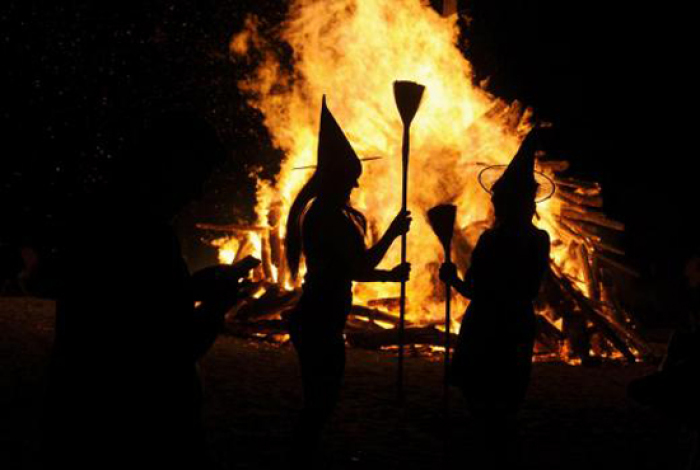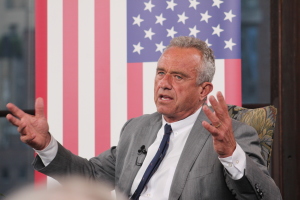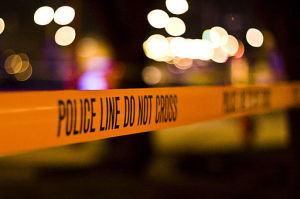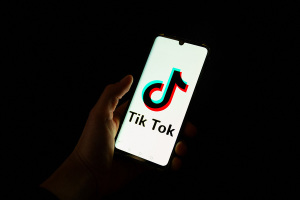Witches Outnumber Presbyterians in the US; Wicca, Paganism Growing 'Astronomically'

The population of self-identified witches has risen dramatically in the United States in recent decades, as interest in astrology and witchcraft practices have become increasingly mainstreamed.
While data is sparse, Quartz noted, the practice of witchcraft has grown significantly in recent decades; those who identify as witches has risen concurrently with the rise of the "witch aesthetic."
"While the U.S. government doesn't regularly collect detailed religious data, because of concerns that it may violate the separation of church and state, several organizations have tried to fill the data gap," Quartz reported.
"From 1990 to 2008, Trinity College in Connecticut ran three large, detailed religion surveys. Those have shown that Wicca grew tremendously over this period. From an estimated 8,000 Wiccans in 1990, they found there were about 340,000 practitioners in 2008. They also estimated there were around 340,000 Pagans in 2008."
Pew Research Center studied the issue in 2014, discovering that 0.4 percent of Americans, approximately 1 to 1.5 million people, identify as Wicca or Pagan, meaning their communities continue to experience significant growth.
The rapid rise is not a surprise to some given philosophical and spiritual trends in culture.
"It makes sense that witchcraft and the occult would rise as society becomes increasingly postmodern. The rejection of Christianity has left a void that people, as inherently spiritual beings, will seek to fill," said author Julie Roys, formerly of Moody Radio, in comments emailed to The Christian Post Tuesday.
"Plus, Wicca has effectively repackaged witchcraft for millennial consumption. No longer is witchcraft and paganism satanic and demonic," she said, "it's a 'pre-Christian tradition' that promotes 'free thought' and 'understanding of earth and nature.'"
Yet such repackaging is deceptive, Roys added, "but one that a generation with little or no biblical understanding is prone to accept."
"It's tragic, and a reminder of how badly we need spiritual revival in this country, and also that 'our struggle is not against flesh and blood, but against the powers of this dark world,'" she said, referencing Ephesians 6, which explains spiritual warfare.
Similarly, radio host and author Carmen LaBerge noted on Twitter that the figures are striking in that witches outnumber certain Christian denominations.
"As mainline Protestantism continues its devolution, the U.S. witch population is rising astronomically. There may now be more Americans who identify as practicing witches, 1.5 mil, than there are members of mainline Presbyterianism (PCUSA) 1.4 mil," she said Tuesday.
Portrayals of occultism as either fun or morally neutral have been appearing more in culture in recent years and in light of growing interest. Companies like cosmetics giant Sephora have attempted to capitalize on it, marketing a "Starter Witch Kit" to consumers interested in dabbling in witchcraft. However, the company angered a number of actual witches and was ultimately forced to apologize and pull the product.
In October 2017, Market Watch reported that the psychic services industry grew 2 percent between the years 2011 and 2016, an industry now worth approximately $2 billion. Also within the last several years, according to Pew, the percentage of people ages 18–29 who "never doubt the existence of God" dropped from 81 percent in 2007 to 67 percent in 2012.
"Rather than deeming everything that is supernatural 'demonic,' the Church needs to wake up to the reality of this realm and begin to approach it from a Kingdom perspective which understands its place and purpose," said Wanda Alger, field correspondent with Intercessors for America and a pastor at Crossroads Community Church in Winchester, Virginia, in a CP interview at the time.
"The sad thing is that these millennials who are exploring the dark side of the supernatural have more faith and belief than most Christians. Because they are open and spiritually hungry, the spirit realm responds. The biggest hindrance to understanding the realities of the Spirit realm is unbelief," she emphasized.
Perhaps most infamously, months after the presidential inauguration a May 2017 editorial in the Los Angeles Times written by novelist Diana Wagman openly spoke of putting a curse on the president and encouraged others to cast similar spells in order to #BindTrump.




























